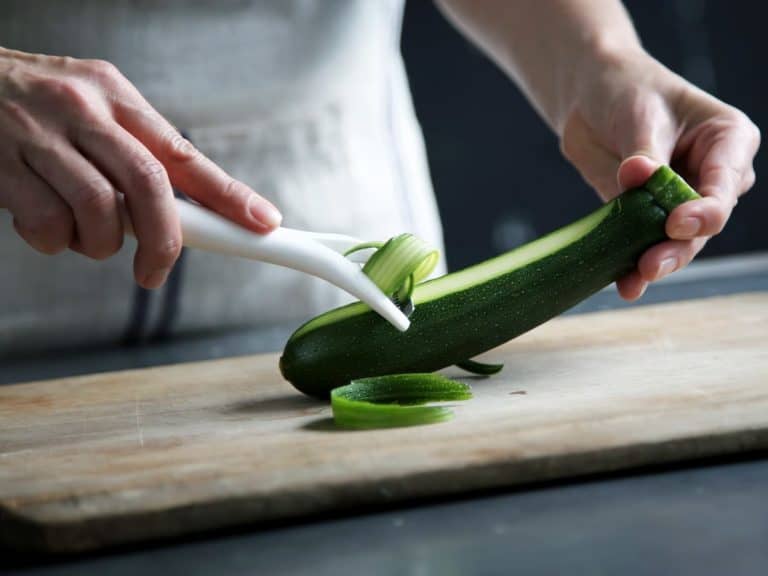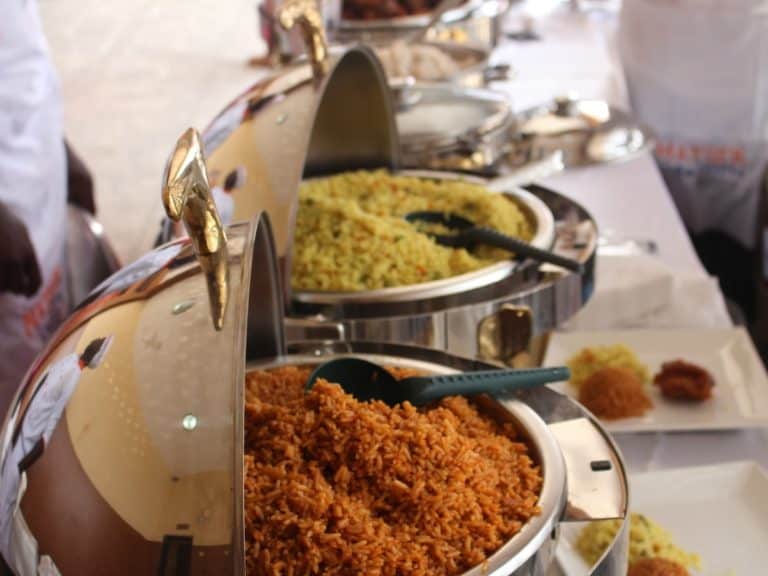Is Culinary School Right for You?
Want to improve your culinary skills in an environment where you’ll work with high-end ingredients, state-of-the-art equipment and expert teachers?
If you want to take your talent to the next level, it’s time to consider culinary school. Whether you’re hoping to open the door to an exciting culinary career or simply looking for personal enrichment, there is a culinary program to suit your needs.
To find out more about cooking classes and degree programs, including program length and tuition information, contact culinary schools and receive free detailed information. Take the first step toward achieving your goals, today!
Choosing a Culinary Degree
The type of culinary degree you choose to pursue will depend on a number of factors. You will need to consider how long you want to devote to formal training before getting a job, your prior education and experience, the particular job you want to hold, and the amount of financial resources you have available to invest in your career.
Degrees range from diploma and certificate programs offered by community colleges and cooking or vocational schools, to post-secondary programs offered by universities that grant master’s and doctoral degrees.
Some culinary programs lend themselves to the business side of the food preparation industry and would be suited to someone hoping to become a restaurant manager or owner. Others concentrate almost solely on the art and science of food preparation and are designed for future chefs and culinary instructors.
Related Article: Top Culinary Schools
Some Celebrity Chefs and Their Culinary Degrees
- Anthony Bourdain, Author and Host of the Travel Channel’s No Reservations and Executive Chef at Brasserie Les Halles in Manhattan—Associate in Occupational Studies (AOS) in Culinary Arts from the Culinary Institute of America
- Todd English, Author and Owner/Executive Chef of The Olive Group—AOS in Culinary Arts from the Culinary Institute of America
- Emeril Lagasse, Author and Host of the Food Network’s Emeril Live—Bachelor of Science (BS) in Culinary Arts from Johnson & Wales University
- Julia Child, Author and Host of the Public Broadcasting Station’s The French Chef—Grand Dipl�me du Cordon Bleu (Diploma) from Le Cordon Bleu
Types of Culinary Degrees
Diploma and Certificate Programs
Diploma and certificate programs can take from one month to two years to complete. You can find them at culinary institutes, cooking schools, community colleges and vocational schools.
There are typically no educational prerequisites, although some programs require a high school diploma or equivalent. If you wish to get accelerated training and enter the workforce as quickly as possible, these culinary programs will help you accomplish both goals.
Associate’s Degrees
You’ll find culinary associate’s degree programs at culinary institutes or community colleges. They generally last from nine months to two years. A high school diploma (or equivalent) is required for admission.
These culinary programs are for people who desire a college degree but do not want to devote four years to their formal education. Students who already have a bachelor’s degree and are seeking to change careers might also find associate’s degrees in the culinary arts attractive.
Bachelor’s Degrees
Bachelor’s and advanced culinary degree programs prepare graduates for entry into the field at a higher level of responsibility and better pay. They also expose students to the management and business aspects of the food industry, providing the background to become a restaurant manager or owner.
Bachelor’s degrees also enable graduates to pursue other food-related fields, such a food writer career. A high school degree or GED is required for admission.
Master’s Degrees
Master’s level culinary degree programs at universities typically last two years and require a bachelor’s degree for entry. Some universities also offer doctoral degree programs that take four to six years to complete and also require a bachelor’s degree.
These programs generally appeal to students who want to become restaurant managers or owners, nutritionists, or dieticians. Additionally, a master’s degree or doctorate will enable you to pursue careers in culinary instruction and academics.
Culinary Career Outlook
The restaurant industry is booming. According to the National Restaurant Association (NRA), Americans now spend nearly half of their food dollars on restaurant sales, a share that has nearly doubled in the last 50 years.
The industry currently stands as the nation’s largest private sector employer, exceeded in number of jobs only by the U.S. government. Currently, the food-service industry employs 13.1 million people, and NRA predicts it will add another 2 million jobs over the next decade.
Job growth looks strongest for chefs, cooks, wait staff and other service-oriented positions, according to the U.S. Bureau of Labor Statistics (BLS). Managerial positions will grow at a slower rate during this period, meaning individuals seeking these positions will have fewer new opportunities to choose from.
For recent graduates seeking jobs in restaurants, institutions, and cafeteria settings, job growth is favorable over the next decade. However, competition for head chef positions will be more intense, with growth for these coveted positions at only about half of the industry average.
Pursuing the Culinary Career You Want
Landing that plum chef job will be a competitive undertaking, in spite of the growth in the restaurant industry. If you eventually want to become a head chef at a top restaurant, you’ll have to get experience under your belt in a lower-level kitchen position first, such as a prep cook or line cook.
A culinary arts degree will not only make you a more competitive candidate for these entry-level positions, it will also help you move up the ranks faster because of the skills you learned during formal training.
As you’re getting started in your search, pay attention to the restaurants you like and the local chefs who inspire you. Then find out if there are job openings working for them.
Even if there aren’t, you might consider volunteering with the hope that something will come up down the road. Learning first-hand from a mentor you respect in a restaurant you admire is well worth your time and a good investment in your future.
In your first job, you’ll need to demonstrate a dedication to learning the skills necessary to advance your culinary career. Although your formal training will help tremendously, there’s simply no replacement for real-world kitchen experience.
Use this time to develop your palate, knife skills, timing and your ability to discern seasonings and flavor combinations. Keeping a positive attitude, showing teamwork and demonstrating your commitment to mastering the art of cooking will be crucial for advancement.
Culinary Externships
Many cooking schools and culinary programs require or strongly encourage students to complete externships as part of their formal training. Many externships are paid, and some might present you with the opportunity to work in another city or country, to concentrate on a particular cuisine, or to work with a chef you have long admired.
Externships are treated by some chefs and employers as working interviews and might lead to permanent employment opportunities. So take them every bit as seriously as you would your first real job in a professional kitchen.
As you consider where to complete your externship, you might be hoping to work with a top chef in a renowned, five-star restaurant. Bear in mind that these positions are highly competitive and the chef may not be as available to mentor you as would a lesser-known counterpart.
If you cannot lower your sights, ask your placement counselor for references from recent graduates who completed externships there. Did they get hands-on experience working with the chef, or were they continually peeling potatoes?
An externship can be a once-in-a-lifetime chance to visit a new place, gain valuable experience, and jump-start your culinary career. Research your options carefully and capitalize on every opportunity open to you.
If you’re serious about pursuing a culinary career, one of the first decisions you’ll make is how and where to gain the training and experience you need to land a job. Rapid expansion in the food-preparation industry has increased the demand for skilled and qualified candidates, and employers increasingly favor candidates with formal education in the field.
There are now more options than ever when it comes to picking a cooking school or culinary program. More than 500 trade schools, colleges and universities offer programs in the culinary arts, and this number continues to grow each year. Of these, more than 200 are accredited the American Culinary Federation Foundation (ACFF), the field’s primary accrediting body.
With all these cooking schools to choose from, picking the right one for you might seem like a daunting task. But there are several things to consider that will help you make an informed decision.
Length of Program Your primary consideration will be how long you want to devote to training and the type of job and working environment you want to enter upon graduation. Programs can range from two months to two years or longer.
Shorter programs, offered by vocational or trade-schools, typically teach food handling and sanitation procedures, nutrition, slicing and dicing techniques, and basic cooking methods. These programs lead to a certificate or diploma.
Longer programs that lead to a certificate or a 2- or 4-year degree train chefs for fine-dining or upscale restaurants. They offer a wider array of training specialties, including advanced cooking techniques, international styles of cuisine, and large-scale food preparation.
Types of Programs Culinary institutes, cooking schools, and apprenticeship programs offer professional culinary training. Cooking classes also provide culinary training, although these classes are typically of short duration and intended to provide serious home cooks experience with new techniques and cuisines.
Culinary institutes offer cream-of-the-crop education for those who are serious about becoming certified culinary professionals. They generally offer degree, diploma, or certificate programs.
Cooking schools are smaller versions of culinary institutes for serious cooks who want specialized training. They generally offer certificate or diploma programs only. Training at either type of school can last from two months to four years.
The primary difference is that many industry professionals consider culinary institutes more prestigious, so they are consequently more costly to attend.
Apprenticeship programs combine on-the-job training with formal classroom education. Programs sponsored by the ACFF usually require two to three years of full-time work combined with a minimum of 12 courses in culinary-related topics from an accredited or approved institution or college.
Specialty Training
Once you have made a decision about the length and type of program you want to attend, you can narrow your selections by looking for a school that focuses on aspects of the culinary arts you are most interested in.
For instance, if you are motivated to become a pastry chef, make sure the coursework and curricula include sufficient training in that area. If you don’t yet know what area of study you want to specialize in, see if the school offers a broad introductory program that will allow you to explore the possibilities before declaring a concentration.
Other Things to Consider
You’ll also want to compare schools on the basis of placement rates, student-to-faculty ratios and accreditation. Ask about opportunities for externships at restaurants or other food establishments where you’d eventually like to work.
Talk to current students or recent graduates to get their first-hand perspective. You might even sit in on a class to get a feel for the teaching approach. If you need to continue working or have other obligations that stand in the way of a traditional schedule, make sure the program offers flexible or part-time training.
Training on the Job
Learning your skills as you work is certainly an option. It will be a slower track, and your training will be limited to the type of cuisine served in the kitchen where you’re working and the duties associated with your position.
If you are unable to devote the time or resources to a formal education, an apprenticeship program that combines on-the-job training with technical classroom instruction might be a better choice. The ACFF sponsors 80 apprenticeship programs in 27 states and the District of Columbia.
Tuition
The costs of your education will vary widely depending on the length of program you choose, the school’s prestige, and the level of degree it awards. Bear in mind some cooking schools and culinary institutes include the costs of textbooks, cooking supplies and uniforms in their tuition and some do not.
Be sure to find out which is the case, and ask for an estimate of these costs if they are not included. Many schools offer financial aid packages and scholarships to their students, so ask an admissions counselor about the availability, requirements, and selection criteria for these forms of assistance.
Is Culinary School Right for You?
Want to improve your culinary skills in an environment where you’ll work with high-end ingredients, state-of-the-art equipment and expert teachers?
If you want to take your talent to the next level, it’s time to consider culinary school. Whether you’re hoping to open the door to an exciting culinary career or simply looking for personal enrichment, there is a culinary program to suit your needs.
Careers for Culinary Graduates
America’s increasing appetite for fine cuisine means more jobs for gourmets, making a culinary diploma or degree a valuable commodity in the job market.
While there are many culinary career paths to follow—both inside and outside the kitchen—the competition is intense for the most prestigious and highest paying positions.
After graduating from a culinary program or cooking school, you’ll most likely have to pay your dues in the industry before you land the job of your dreams. In a restaurant setting, that might mean starting as a prep cook or garde manger and then climbing through the ranks as you gain experience.
Experienced chefs stress the value of working your way up from the bottom and learning from your superiors. Most often, that’s the way they got to the top.
Job opportunities are also available in hotels, convention centers, spas, cruise ships, catering businesses, institutions, and retail gourmet food shops. Some culinary graduates choose to pursue an unusual course, such as becoming a food writer or food photographer.
Here are some of the most popular occupations for people with culinary degrees.
Restaurant Careers
The most successful professional kitchens rely on teams of skilled cooks, who each contribute their skills to a specific part of preparing meals for guests. The following paragraphs describe the various kitchen roles in order of rank and experience.
While these roles and titles are typical of an upscale restaurant, not all kitchens use them, and in smaller establishments some roles and responsibilities may be consolidated.
Prep Cooks
Prep cooks prepare food ingredients for meal preparation. They may wash, peel, slice, cut, or chop vegetables and other ingredients, and then refrigerate or seal the ingredients so they are readily available when needed to prepare a dish. A general rule is that the prep cook does not actually cook anything, but may be responsible for preparing a certain portion of a dish.
Line Cooks
The next-step job in a professional kitchen is that of line cook. Line cooks may be responsible for some of a prep cook’s duties in smaller establishments, but in addition to these, they will prepare broths or simple sauces, trim and prepare meats, clean work areas, and monitor oven and stovetop temperatures.
The garde manger (French for “keeper of the food”) is typically the entry-level line cook position in a larger kitchen. The garde manger’s responsibilities include preparing foods such as salads and cold soups and plating desserts.
Specialized Chefs
Specialized chefs are typically cooks who have already gained significant restaurant experience as line cooks or in other capacities. Specialized chefs possess finely developed expertise in a particular area of food preparation.
They include pastry chefs or patissiers, who often work very early shifts to prepare the day’s pastries and baked goods; rotisseurs, who roast and braise meats; and sauciers, who are responsible for all saut�ed items and their sauces, and who typically hold the highest station among the specialized chefs.
Sous Chefs
The sous chef or deputy chef is second in command to the restaurant’s head chef. Sous chefs are often in charge of the minute-by-minute affairs in the kitchen, while the head chef is attending to administrative affairs.
They are expertly trained chefs who function more in a supervisory capacity than in food production. Three years of hands-on experience is generally required before assuming the role of sous chef.
Head Chefs
The head chef, who is sometimes called the executive chef or chef de cuisine, occupies the top role in a professional kitchen. He or she is in charge of all food service operations, supervises and staffs the kitchens and dining operations, determines menus, orders food products, and serves as the public persona for the restaurant.
In a corporate or hotel environment, the head chef may be in charge of several kitchens and, in addition, oversee catering operations and dining events for conventions or other large-scale gatherings. At least seven years of experience are common before ascending to the role of head chef.
Other Culinary Career Environments
Restaurant work is not your only choice after graduating from a cooking school. Some culinary graduates own or work for catering companies. Others work as personal or private chefs, designing and preparing meals for busy individuals and families to enjoy later.
Corporate dining rooms and cafeterias as well as spas, cruise ships, and hotel and convention centers are additional places to look for work, both in the kitchen and in related areas such as hospitality management—which includes jobs like concierge and event planner.
Graduates of hospitality and restaurant management programs (typically four-year, bachelor’s degree programs) might pursue work as restaurant managers. Or they might own and operate their own restaurants. Those with advanced degrees from master’s or doctoral programs might choose to work as culinary instructors or in other academic fields.
Unusual Culinary Careers
Not every culinary graduate chooses to cook for a living. Many work for the media, design firms and food-development corporations. If, after your training, you find the professional kitchen environment is not for you, you have already opened the door to a host of food-related careers that might combine your love of food with other skills or interests.
The booming gourmet industry has created demand for food stylists and photographers, food publishing and television programming, food writing, food research and science, and retail gourmet goods and services.
How to Choose a Culinary Career
Ultimately, only you can decide which culinary career best fits with your interests, lifestyle, and career aspirations. If your love of cooking is foremost and you dream one day of becoming a head chef or of hosting your own cooking show, it is probably best to get your start in a fine-dining environment and begin the process of working your way up.
However, if you find during the course of your training that writing about food is more your forte, or that you prefer to work on the operational side of the industry, seek out those opportunities and learn what additional skills you’ll need to land a job.
When choosing a career, it is also worth knowing the job outlook for a particular occupation and what kind of salary you can expect to earn. Here are a couple of articles to get you started:





